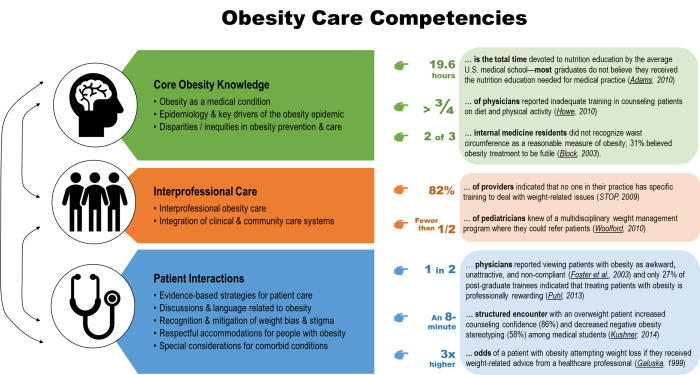This month, more than 20 leading health organizations representing a range of health care providers released the first-ever set of interdisciplinary educational competencies for the prevention and treatment of obesity. Collectively, the competencies span virtually all aspects of care and establish a common basis for understanding and working with people with obesity. It is remarkable that such a diverse group came to consensus on such a comprehensive list of care competencies. This activity was an outgrowth of the article we published in Health Affairs that describes a framework of integrated clinical-community for the prevention and treatment of obesity. Training and education is one element of that framework. The competencies are not a curriculum. Our expectation is that each of the participating organizations will adapt the competencies to the needs of their profession.
Many educational institutions recognize the importance of improved provider training and education around chronic disease, but most have failed to integrate obesity-specific knowledge and skills into their curricula. This sentiment was echoed by members of an expert panel assembled at the Bipartisan Policy Center for the release of the competencies —including Dr. Kofi Essel of Children’s National Health System.
The competencies were developed through the Provider Training and Education (PTE) Workgroup of the Integrated Clinical and Social Systems for the Prevention and Management of Obesity Innovation Collaborative, an ad hoc activity associated with the Roundtable on Obesity Solutions at the National Academies of Sciences, Engineering, and Medicine. The figure below provides an abbreviated outline of the competencies and some statistics that underscore the need to integrate fundamentals of obesity care into health professionals’ training:
Improvements in the care of patients with obesity will likely result from providers who meet these competencies. While the depth of knowledge or skill for a given competency will vary based on specialty, incorporating the competencies into curricula of health care organizations, licensing exams, and continuing education is an essential next step to improving the ability of providers to deliver effective care for patients with obesity.




